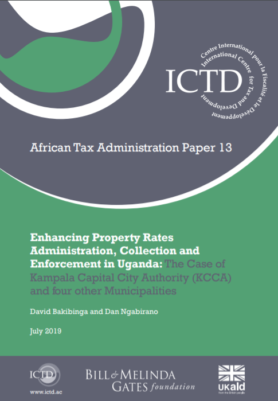African Tax Administration Paper 13
Uganda was among the first African countries to embrace a decentralised system of government in the 1990s. The objective of this policy was to bring services closer to the people while at the same time enhancing local participation and democracy. The success of decentralisation was, however, greatly dependent on the amount of funds and other resources available to local governments. Before it was scrapped, graduated tax – a form of poll tax – contributed a significant part of local government own source revenue. Following its abolition, local service and local hotel taxes were introduced to compensate for the loss in revenue. Recent studies, however, show that collections from these two taxes are highly inadequate and that local governments are highly dependent on central government grants in running their operations. This undermines the whole essence of decentralisation which, among other things, aims at strengthening the autonomy of local governments. Be that as it may, the recent population surge and boom in urban areas especially has seen property rates emerge as an important source of own source funding for local governments. The challenge, however, is that while property rates present a huge potential for closing the existing funding gap in most local governments, they are for the most part poorly enforced. Using experiences from the Kampala Capital City Authority (KCCA) and four other municipalities, this paper makes a case for reform of the property rates regime in Uganda. This includes proposals for the amendment of the law to remove exemptions for owner-occupied property, imposing rates on vacant urban land, using ICT processes in collection and enforcement, creating revenue collection units in municipalities, and setting up ratepayers associations to engage the urban authorities on effective collection and use of property rates.

